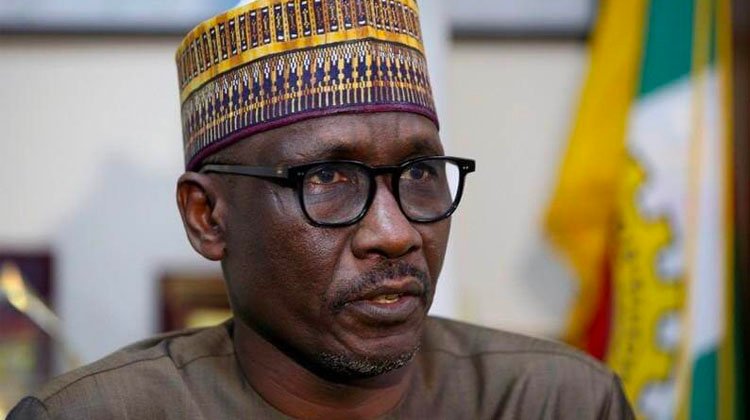
The Group Managing Director of the Nigerian National Petroleum Company Limited, Mele Kyari, has shown the House of Representatives’ Committee on Petroleum Resources (Upstream), in photos and videos, how the country’s crude oil assets are being vandalised and the products stolen.
Kyari urged the National Assembly to establish a special court that would handle cases relating to oil and gas to accelerate prosecution of oil thieves.
He said “I am not sure that we are short of legislation; it is life imprisonment for attack on these facilities. So, there are laws to support this. All we need to do is to increase the advocacy so that the legal process takes its course, prosecutions are done timely.
“I will recommend that we set up a special court for this. Such cases will be speedily dealt with, so that it is not just the ordinary ‘small’ people that you see at those locations that are prosecuted.”
The GMD of the NNPC, who described oil theft and illegal refining as an elitist business, told the committee on Thursday that a few persons were responsible for the economic sabotage.
“We know that to sell crude oil in the international market, it is not the business of the ordinary people that you see in these illegal refineries. It is an elitist business and we must have the courage to set up very independent special courts to try cases related to this. Otherwise, the impact it has on our economic outlook – our ability to generate foreign exchange and in terms of energy security for this country – is threatened by a very few people.
“Clearly, they are a few people. It is not beyond us and I am very confident that the leadership being given by the Chief of Defence Staff alongside the service chiefs and others, will probably in another one to two months, bring some sanity. We are also working on sustainability, not just recovery but to have a sustainable framework,” Kyari said.
The NNPC boss added, “It is not a helpless situation; yes, it is a very daunting situation, no doubt.”
He recalled that the President, Major General Muhammadu Buhari (retd.), had directed the Chief of Defence Staff, Gen Leo Irabor, to “lead a war – clearly it is a war – to contain this situation and bring it to the barest minimum.”
He said, “So much is going on, needless to say, it is not for this platform to bring out the details. But I can share with you; there is a massive activity going on now by the government’s security agencies in collaboration with the industry-the NNPC and two regulatory institutions, and of course, the Nigerian Navy, the Nigerian Army, the Nigerian Air Force and the Department of State Services. Other agencies like NIMASA are also involved. They are all aligned, working together to contain this situation. And we are seeing clear results.
“Yes, we have not gotten back to production but clearly today, activities that are going on promise that within the next one to two months we will restore some level of normalcy. As we sit, there are a number of arrests made both by the Department of State Services of high calibre oil thieves and the JTF, even by the Nigerian Navy in the last two weeks. And many more arrests are taking place, many of these illegal refineries are being taken down and insertions are being constantly removed.
“We believe that these interventions, without speaking much of the details on these, will pay off and we will be able to restore production to normalcy. And this is centrally coordinated; I will not speak about the details but I can share with you that there is a coordinated action now that will clearly pay off because we are using a number of strategies, including involvement of community-based security outfits.”
According to the NNPC boss, the Economic and Financial Crimes Commission and the Nigerian Financial Intelligence Unit have also been mobilised to track funds linked to illegal oil businesses.
Kyari also blamed the recent spike in the pump price of Automotive Gas Oil for the invasion of the market by illegal refiners.
“As you may be aware that the diesel that you see, until very recently in the last three weeks when we clamped down on some of these illegal refineries, is actually coming from these illegal refineries.
“A lot of us here, I am sure, have generators in our homes – many of us, if not all; I can tell you that until the last three weeks, most of the diesel that you used in your homes was coming from these refineries. That is why when we took them out, when we cut off their lines of supply by stopping the trucks from moving, by security agencies razing down trucks when they arrest them with illegal AGO, that was when you heard that AGO got to N900 per litre. That was not the market price for AGO.
“Obviously, once the supply becomes constrained, prices will go up. We are happy that the NNPC’s intervention has brought down the prices to the normal market level and we will continue to do so, so that people have alternatives to this illegal fuel. People buy it is because it is cheaper; what was being sold in the market was not the market price of AGO that many of us were paying for,” he said.
The GMD decried that oil theft has been responsible for the low effect of the Petroleum Industry Act on the industry, lamenting that it was now scaring investors away from Nigeria.
He said, “No doubt, it is a very difficult circumstance for the industry and that is why despite the good intentions and the provisions of the PIA, no one will produce oil and recover zero, and still put money back into the business. That is why investments are very weak despite the good fiscal environment that PIA has brought.
“If I have the privilege to answer questions around our investment climate on international platforms, they ask me, ‘We will bring our money, how are you sure they will not steal the oil?’ It is very difficult to give a very straight answer. Of course, with what we are doing now, we will contain it and we will bring back stability.”
Copyright PUNCH.
All rights reserved. This material, and other digital content on this website, may not be reproduced, published, broadcast, rewritten or redistributed in whole or in part without prior express written permission from PUNCH.
Contact: [email protected]





